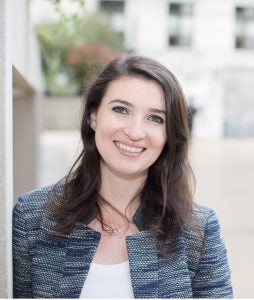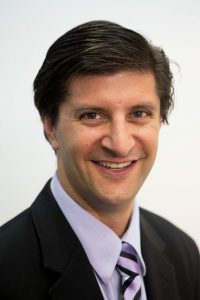The Harvard MPH in Epidemiology benefits from one of the world’s most accomplished epidemiology faculty. Our renowned teaching faculty includes pioneers in online education and flexible teaching formats.
Faculty and Administration
 Heather Baer, ScD
Heather Baer, ScD
MPH in Epidemiology Faculty Director
Associate Professor of Epidemiology
Harvard T.H. Chan School of Public Health
Harvard Medical School
Dr. Heather Baer, ScD, is an Associate Professor of Epidemiology at the Harvard T.H. Chan School of Public Health and an Associate Epidemiologist in the Division of General Internal Medicine and Primary Care at Brigham and Women’s Hospital. She is the Faculty Director of the MPH in Epidemiology program, the lead instructor for Analytic Methods in Epidemiology (EPI 522), and the Chair of the MPH in Epidemiology Practicum Committee. She also is the Course Director of Introduction to Clinical Epidemiology (EPI 208) during the Summer Program in Clinical Effectiveness and the leader of the MPH in Clinical Effectiveness program. Dr. Baer received a Teaching Citation from the Harvard T.H. Chan School of Public Health in 2013, and she received the Roger L. Nichols Excellence in Teaching Award in 2017.
Dr. Baer’s research focuses on the role of lifestyle factors in the etiology and prevention of chronic disease. She has conducted analyses in the Nurses’ Health Study and other cohorts to examine how factors such as obesity, diet, and physical activity affect risk of breast and ovarian cancer and overall mortality in women. Her most recent work also examines the impact of strategies for addressing lifestyle factors in the clinical setting. She currently is the Principal Investigator of a study funded by the Patient-Centered Outcomes Research Institute (PCORI) to evaluate the effectiveness of an online weight management program integrated with support from primary care practices.
 Stephanie Lemoine, M.A.
Stephanie Lemoine, M.A.
Assistant Director
MPH in Epidemiology Program
Harvard T. H. Chan School of Public Health
Stephanie Lemoine is the Assistant Director of the MPH in Epidemiology program at the Harvard Chan School. She has worked at the Chan School for 11 years and has been with the MPH-EPI program since it was developed. Besides being the Academic Program Manager for the MPH in Epidemiology Program, she is also the Program Manager for the Summer Session for Public Health Studies at the Harvard T.H. Chan School of Public Health. Prior to her current role, Stephanie also worked on the residential MPH program in addition to the Integrated Course in Clinical Epidemiology and Biostatistics and the Certificate Program in Clinical Research Methods. Stephanie holds a Masters of Arts Degree in Higher Education Administration from The Lynch School of Education at Boston College.

E. Francis Cook, ScD
Professor of Epidemiology
Harvard T. H. Chan School of Public Health
Harvard Medical School
Dr. Cook developed the MPH in Epidemiology program and was previously the faculty director of the program. In addition to the MPH-EPI program, Dr. Cook also developed the Summer-Only Master of Science (SM) in Epidemiology and the Summer-Only Master of Public Health (MPH in Clinical Effectiveness) degree programs at Harvard Chan. Dr. Cook is a Co-Director of the seven-week Summer Program in Clinical Effectiveness at Harvard Chan, which each summer trains over 250 clinicians from the Harvard Hospitals and from other national and international sites with the quantitative skills that are needed for clinical research. He was a Co-Instructor for one of the first two Massive Open Online Courses (Health in Numbers: Quantitative Methods for Clinical and Public Health Research) offered by the Harvard/MIT EdX Program. He also helped develop and is a Co-Director for the Programa de Efectividad Clinica in Buenos Aires. He is a member of the Scientific Advisory Board for the Center for Native Hawaiian and Pacific Islanders Heath Disparities Research at the University of Hawaii. He has won Citations for Excellence in Teaching from the Harvard Chan School on four occasions, the Alumni Award of Merit from the Harvard Chan School for his teaching and mentoring, the Teaching Award from the Center of Clinical Investigation at the Brigham and Women’s Hospital. Dr. Cook is a Co-Instructor for the Analytic Methods for Epidemiology course (EPI522) in the fall semester in Year 1 and a Co-Instructor in the Introduction to Data Mining and Risk Prediction course (EPI288) in the spring semester of Year 2. He is also a member of the MPH-EPI Practicum Committee.
 Garrett Fitzmaurice
Garrett Fitzmaurice
Professor of Biostatistics
Harvard T.H. Chan School of Public Health
Harvard Medical School
Dr. Fitzmaurice has research interests in a number of areas, including methods for analyzing discrete longitudinal data, models for mixed discrete and continuous outcomes, general missing data problems, methods for detecting and adjusting for overdispersion, and statistical problems in psychiatric epidemiology and mental health research.
A major focus of his research is on the development of statistical methodology for analyzing discrete multivariate data. In particular, he has developed likelihood-based methods for analyzing multivariate binary data arising from longitudinal studies. In addition, he has developed methods for handling non-ignorable dropouts in longitudinal clinical trials. Dr. Fitzmaurice has also conducted research on methods for simultaneously analyzing mixed discrete and continuous outcomes. Recently, he has begun developing methods for analyzing complex sample surveys.
Dr. Fitzmaurice’s research in psychiatric epidemiology has concentrated on methodological problems surrounding the use of multiple informant data in mental health surveys. Much of Dr. Fitzmaurice’s more recent collaborative research has concentrated on applications to mental health research, broadly defined. He is the Principal Instructor for the Linear and Longitudinal Analysis course in the spring semester of the second year.
 Susan Goldie, MD, MPH
Susan Goldie, MD, MPH
Roger Irving Lee Professor of Public Health
Director, Global Health Education and Learning Incubator at Harvard University
Director, Center for Health Decision Science
Harvard T.H. Chan School of Public Health
Sue Goldie’s professional agenda includes improving women’s health in all parts of the world, using evidence-based policy to reduce global health inequities, building bridges between disciplines to tackle critical public health challenges, and fostering innovation in education.
Trained as a physician and public health scientist, she has focused her career on improving the health of vulnerable populations, in particular women, across the globe. A MacArthur award recipient (2005-2010), Dr. Goldie is renowned for rigorous scholarship and her commitment to translate new knowledge to policy. She has published close to 200 original research papers and reports, reflecting her work in mathematical disease modeling and policy analyses to guide public health decision-making. Focusing on viruses of global importance, vaccine-preventable diseases, and maternal health, she has been the Principal Investigator on awards from the National Institutes of Health, Bill & Melinda Gates Foundation, and MacArthur Foundation. She has served on several international advisory boards, including the Board on Global Health in the Institute of Medicine, and was elected to the National Academy of Sciences in 2009.
Dr. Goldie is the founding faculty director of the Harvard Global Health Institute; under her leadership, the Institute placed strong emphasis on infusing global health perspectives into educational opportunities across the University through the promotion of collaborative cross-disciplinary teaching, support of broadly inclusive learning spaces, and development of innovative pedagogical tools and approaches. Dr. Goldie is building upon and expanding this work through her leadership of the Global Health Education and Learning Incubator.
A champion of interdisciplinary education and innovative pedagogy, Dr. Goldie teaches undergraduates and graduates, and has mentored dozens of scholars and practitioners of public health. She received the Everett Mendelsohn Excellence in Mentoring Award from Harvard University, several Harvard T.H. Chan School of Public Health Educational Awards, and Citations for Teaching Excellence in each of the last 12 years.
In 2011, she was appointed as the founding Faculty Director of the Harvard Global Health Institute by Harvard University President, Drew Gilpin Faust. In 2014, she was named the Director of the Global Health Education and Learning Incubator at Harvard University, and Special Advisor to the Provost on global health education and learning, by the University’s Provost Alan M. Garber. She is the Principal Instructor for the Decision Science Analysis course in the spring semester of the second year.
 Brian Healy, PhD
Brian Healy, PhD
Associate Professor of Biostatistics
Harvard T.H. Chan School of Public Health
Harvard Medical School
Dr. Brian Healy, PhD, is an Associate Professor of Neurology at Harvard Medical School, he is the primary biostatistician for the Partners MS Center at Brigham and Women’s Hospital, and he is a member of the Massachusetts General Hospital (MGH) Biostatistics Center. He obtained his PhD in Biostatistics from the Harvard Chan School in 2007. Dr. Healy has taught many courses related to biostatistics at Harvard Medical School and at the Harvard Chan School. He is the Director of the Harvard Catalyst Certificate in Applied Biostatistics, which is a 35-week, primarily on-line course that introduces medical researchers to most commonly used techniques in the medical literature. He was the instructor for Principles of Biostatistics II (BIO203) at the Harvard Chan School for four years, and this past summer he taught the introductory biostatistics module for the Master’s Program in Clinical and Translational Investigation at Harvard Medical School. In addition to full courses, Dr. Healy has led several short courses related to biostatistics at MGH. He has given lectures related to biostatistics for several courses including the Introduction to Clinical Investigation (ICI) and Fundamentals of Clinical and Translational Research (FaCToR) through Harvard Catalyst and the Design and Conduct of Clinical Trials at MGH. He also has taught online and on-site courses as part of the HMS-Portugal Program and the Global Clinical Scholars Research Training Program. Dr. Healy began his teaching career as a Teach For America corps member from 2000-2002. Dr. Healy’s research focuses on modeling the disease course in patients with multiple sclerosis.
 Sonia Hernandez-Diaz, ScD
Sonia Hernandez-Diaz, ScD
Professor of Epidemiology
Harvard T.H. Chan School of Public Health
Sonia Hernandez-Diaz is a Professor of Epidemiology at the Harvard T.H. Chan School of Public Health. Hernandez-Diaz is the current President of the International Society for Pharmacoepidemiology and a past-president of the Society for Perinatal and Pediatric Epidemiology Research. She has served as a Special Government Employee and a voting member for the FDA Drug Safety and Risk Management Advisory Committee. Her area of interest is drug safety evaluation from non-randomized data, with a special emphasis in the design, conduct, and analysis of studies in pregnant women. She has published more than 170 articles in clinical and epidemiological journals. She is the leading author of the pregnancy chapter for the AHRQ guide on “Registries for Evaluating Patient Outcomes,” and the current co-editor of the internationally-known “Rothman” Modern Epidemiology. Moreover, through her service at FDA, NIH and CDC she has contributed to the translation of research into policy and actionable recommendations for stakeholders.
Hernandez-Diaz’s research focuses on pregnant women and their infants, recently concentrating on the vulnerable Medicaid population. Another area of interest concerns the application of causal inference approaches to define confounding and selection biases in ways that facilitate the identification, communication, and resolution of common analytical problems in non-randomized studies. Her team has contributed methodological work on the use of Big (health care) Data for studies of drug utilization, safety, and effectiveness in pregnant populations. She also has experience on case-control surveillance designs and ad hoc pregnancy cohorts.
 I-Min Lee, MPH, MD, ScD
I-Min Lee, MPH, MD, ScD
Professor of Epidemiology
Harvard T.H. Chan School of Public Health
Harvard Medical School
Dr. Lee’s main research interest is in the role of physical activity in promoting health and preventing chronic disease. This extends to characteristics associated with a physically active way of life, such as the maintenance of ideal body weight. She also is concerned with issues relating to women’s health. At present, she primarily is involved in two research projects. The first being, the College Alumni Health Study, a prospective cohort study of the predictors of chronic diseases, with emphasis on physical activity, among 70,000 alumni from Harvard University and the University of Pennsylvania. Second, the Women’s Health Study, a randomized, double-blind, placebo-controlled trial designed to evaluate the balance of benefits and risks of low-dose aspirin and vitamin E in the primary prevention of cardiovascular disease and cancer among 40,000 female health professionals, aged 45 years and older, that ended in 2004. Participants are currently followed on an observational basis. An ancillary study begun in 2011 will measure physical activity objectively for 7 days, using accelerometers, among approximately 18,000 women.
 Ellen McCarthy, MPH, PhD
Ellen McCarthy, MPH, PhD
Associate Professor of Epidemiology
Harvard T.H. Chan School of Public Health
Harvard Medical School
Dr. McCarthy received her B.S. in cardiopulmonary science from Sargent College at Boston University in 1988 and her MPH (1989) and PhD (1996) in epidemiology from Tulane University School of Public Health and Tropical Medicine.
Dr. McCarthy is an epidemiologist with expertise using large administrative databases and national surveys to address healthcare issues. Her research focuses on care of vulnerable populations in two critical understudied areas. Her research has contributed to our understanding of racial and ethnic disparities in cancer treatment and end-of-life care. Her research has also contributed to our understanding of the impact of screening mammography on breast cancer stage at diagnosis and survival in older women.
In her role as Assistant Dean for Development and Diversity at Harvard Medical School, Dr. McCarthy leads the development leads the development and implementation of strategic plans and programs with regard to mentoring and career development activities. Dr. McCarthy is the recipient of the 2008 Harvard Medical School Young Mentor Award and Harvard Medical School 2012 Barger Award for Excellence in Mentoring at Harvard Medical School.
 Anna Sara Oberg MD, MPH, PhD
Anna Sara Oberg MD, MPH, PhD
Assistant Professor
Harvard T.H. Chan School of Public Health
Karolinska Institute
Dr. Sara Oberg is an Assistant Professor in the Department of Medical Epidemiology and Biostatistics at Karolinska Institutet, Stockholm Sweden, and an adjunct Assistant Professor in the Department of Epidemiology at the Harvard T.H. Chan School of Public Health. During her postdoc appointment at Harvard Chan Dr Oberg got involved in several blended teaching ventures, serving a teaching fellow in the school’s first implementation of the flipped course format (Principles of Biostatistics and Epidemiology) and as a Curriculum Fellow for the launch and implementation of the blended MPH-Epi degree program. As faculty she helped develop a course in Systematic Review and Meta-analysis, and currently serves as co-instructor in the Analytic Methods course, practicum mentor, and member of the practicum committee.
Dr Oberg’s research interest is in Reproductive Epidemiology and the innovative use of methods and data to address topics with technical or methodological challenges, incl. applications of mediation analysis, family-designs and drug safety in pregnancy. Her current work on the long-term health of children born after fertility assistance contributes to an NIH-funded international multi-center collaboration centered at. Harvard Chan and Harvard Medical School.
 John Orav, PhD
John Orav, PhD
Associate Professor of Biostatistics
Harvard T.H. Chan School of Public Health
Harvard Medical School
Dr. Orav teaches both the introductory biostatistics course and the second level regression course at the Harvard T.H. Chan School of Public health, where he has received numerous teaching awards. He is an Associate Director of the summer Program in Clinical Effectiveness and has taught the introductory biostatistics course in that program since its inception 30 years ago. His research interest centers on the modeling of the progression of chronic diseases such as multiple sclerosis or HIV. Rather than focusing on a single endpoint, a patient with a chronic disease can move through multiple stages. The rates of progression through the stages can be effected by characteristics inherent to the patient, or through outside factors such as treatments. Challenges in constructing such models and providing estimates and tests of the model parameters, include the large number of parameters that must be considered and the complex inter-relationships between times spent in the various stages. Dr. Orav’s interests in statistical computing and simulation have provided the tools necessary to take such models from a theoretical formulation to actual implementation. He is a Co-Instructor for the Analytic Methods for Epidemiology course (EPI522) in the fall semester in Year 1.
 Pamela Rist, ScD
Pamela Rist, ScD
Assistant Professor in Epidemiology
Harvard T.H. Chan School of Public Health
Harvard Medical School
Dr. Pamela Rist, ScD, is an Assistant Professor in Medicine at the Harvard Medical School and an Instructor in Epidemiology at the Harvard T.H. Chan School of Public Health. She taught in Health in Numbers: Quantitative Methods for Clinical and Public Health Research, one of the first two massive open online courses (MOOC) offered through the Harvard/MIT edX program. She is the Course Instructor for the summer Principles of Biostatistics and Epidemiology course offered to students in the Doctor in Public Health Program at the Harvard Chan School. Dr. Rist uses a “blended format” to teach this course, utilizing videos from the edX course with on-campus lectures and group exercises. She also teaches in Fundamentals of Epidemiology, a large introductory epidemiology course offered in the fall semester at the Harvard Chan School. She has been involved in other courses at the Harvard Chan School including Introductory Statistics for Medical Research and served as a teaching assistant for a course on regression methods for analyses of epidemiologic data and an integrated course in clinical epidemiology and biostatistics. She has received teaching awards from the Harvard T.H. Chan School of Public Health and the Department of Epidemiology for her teaching.
Dr. Rist’s academic research interests are primarily focused on the epidemiology of cardiovascular disease (particularly stroke) and neurologic diseases (especially those with a vascular component) with the goal of identifying ways to reduce the morbidity burden associated with stroke, migraine, and cognitive decline. During her doctoral degree, she received the Abraham Lilienfeld Student Prize Paper Award from the Society for Epidemiologic Research for her research on migraine and functional outcomes from stroke.
 Meredith Rosenthal, PhD
Meredith Rosenthal, PhD
Professor of Health Economics and Policy
Associate Dean for Diversity
Harvard T.H. Chan School of Public Health
Dr. Rosenthal received her B.A in International Relations (Commerce) from Brown University in 1990 and her Ph.D. in Health Policy (Economics track) from Harvard University in 1998.
Her research focuses primarily on policies that will help slow the growth in healthcare spending. These efforts include changes in payment incentives, benefit design, and the provision of information and behavioral “nudges” to both patients and providers. Her research has influenced the design of provider payment systems in both the public and private sectors. She has advised federal and state policymakers in healthcare payment policy and implementation. She has also testified in Congressional hearings on direct-to-consumer advertising of prescription drugs and pay-for-performance and in legislative hearings in California and Massachusetts concerning healthcare provider payment and benefit design policies.
During the 2008 presidential campaign and post-election transition, she provided policy analyses to Barack Obama’s healthcare team regarding opportunities for Medicare payment reform, pay for performance, and cost control. Her work has been published in the New England Journal of Medicine, the Journal of the American Medical Association, Health Affairs, and numerous other peer-reviewed journals. In 2014, Dr. Rosenthal was elected to the Institute of Medicine (recently renamed the National Academy of Medicine).
Dr. Rosenthal is a member of the Committee on Higher Degrees in Health Policy, a member of the Massachusetts Public Health Council, and Board Chair of Massachusetts Health Quality Partners, a multi-stakeholder quality improvement organization. She works closely with the Dean’s Advisory Committee on Diversity and Inclusion (DACDI) on strategic planning and issues related to diversity affecting all members of the School community.
 Howard Sesso, ScD, MPH, FAHA
Howard Sesso, ScD, MPH, FAHA
Professor of Epidemiology
Harvard T.H. Chan School of Public Health
Harvard Medical School
Dr. Howard D. Sesso is an Associate Professor of Medicine at the Division of Preventive Medicine at Brigham and Women’s Hospital and Harvard Medical School, and serves as Director of Nutrition Research and Co-Director of Hypertension Research. He is also an Associate Professor of Epidemiology at the Harvard T.H. Chan School of Public Health. Dr. Sesso specializes in the epidemiology and prevention of cardiovascular disease and major risk factors including hypertension and obesity. His research also focuses on dietary factors such as vitamin and mineral supplements, lycopene, and flavonoids, plus the role of nutritional biomarkers. He is also interested in the role of diet and lifestyle in the prevention of cancer. Dr. Sesso is also an expert in the design, methodology, and conduct of epidemiologic studies and randomized clinical trials. He leads the Physicians’ Health Study (PHS) II, a trial that tested vitamin supplements, including a multivitamin, on cardiovascular disease, cancer, and other chronic diseases in 14,641 men with more than a decade of follow-up. Dr. Sesso is also testing the effects of vitamin D and fish oil supplements on ambulatory blood pressure and the risk of developing hypertension in an ancillary study from the VITamin D and OmegA-3 TriaL (VITAL) trial. Finally, he is Co-Principal Investigator of the COcoa Supplement and Multivitamin Outcomes Study (COSMOS), a randomized trial that will test cocoa flavanol and multivitamin supplements in the prevention of cardiovascular disease and cancer in 18,000 women and men. Dr. Sesso has published more than 200 papers to date, and especially enjoys teaching and mentoring new investigators.
 Delia Wolf MD, JD
Delia Wolf MD, JD
Lecturer on Health Policy and Management
Associate Dean for Regulatory Affairs and Research Compliance
Harvard T.H. Chan School of Public Health
Dr. Wolf is the Associate Dean for Regulatory Affairs & Research Compliance at Harvard T. H. Chan School of Public Health. She is also a faculty member in the Department of Health Policy and Management. In her role as Associate Dean, Dr. Wolf is responsible for establishing and implementing a comprehensive Human Research Protection Program, developing and implementing policies and procedures and ensuring faculty and institutional regulatory compliance in the areas of human research, animal research, lab safety, bio-safety and research integrity. She serves as the Institutional Official (IO) for all research involving humans, as well as Environmental Safety Compliance Officer (ESCO) at the Harvard Chan School. She also oversees efforts in international research, including review of institution collaboration agreements and global research ethics training.
As a faculty member in the Department of Health Policy and Management, Dr. Wolf teaches courses relating to legal and ethical issues in reviewing, conducting and overseeing human research.
She is a nationally recognized speaker and an accomplished teacher who has served as a faculty member at numerous national conferences sponsored by Public Responsibility in Research and Medicine (PRIM&R), the Association for the Accreditation of Human Research Protection Program (AAHRPP), among others. She is also a sought-after expert, who has been providing consultation to many institutions in the US, as well as abroad, for the establishment of research compliance programs. She is currently a Council member of AAHRPP.
As a former clinical researcher, IRB chair and Director for a research quality assurance and improvement at Massachusetts General Hospital and Brigham and Women’s Hospital for more than a decade, Dr. Wolf has extensive experience in conducting, organizing, developing, and overseeing the full spectrum of clinical research. Her research interests include legal, ethical, and practical issues in conducting and managing clinical research in different countries. She is the Principal Instructor for the Ethical and Regulatory Issues in Human Research course (HPM549) in June of the second year.
Learn more about the faculty in the Department of Epidemiology.
You must be logged in to post a comment.